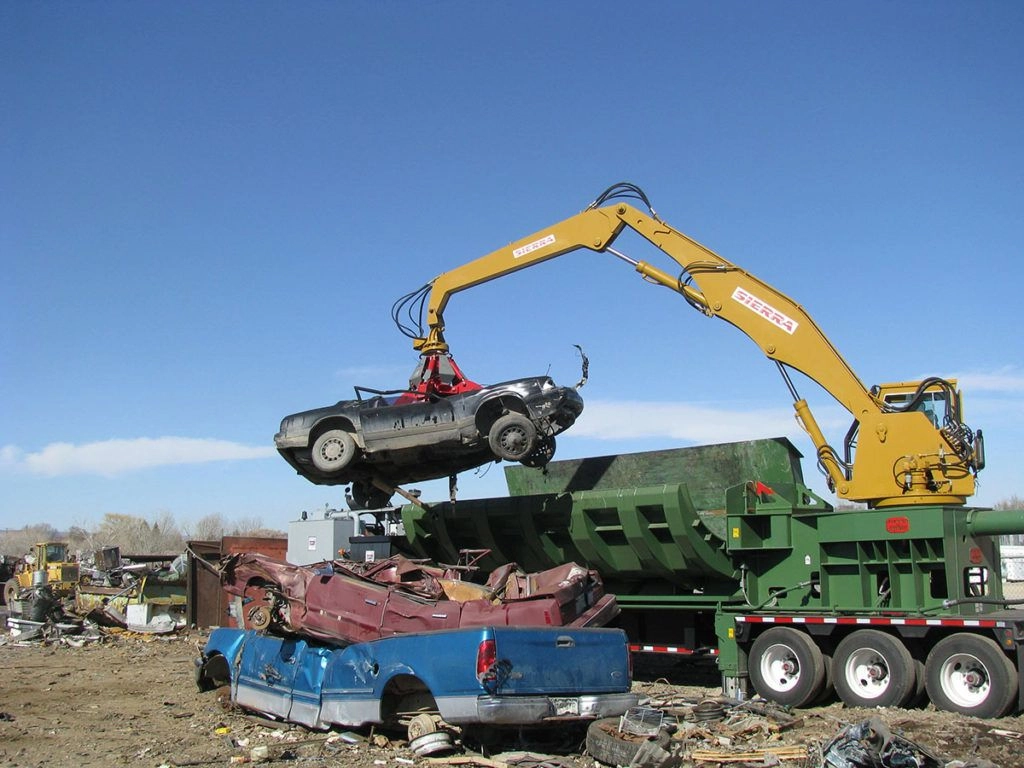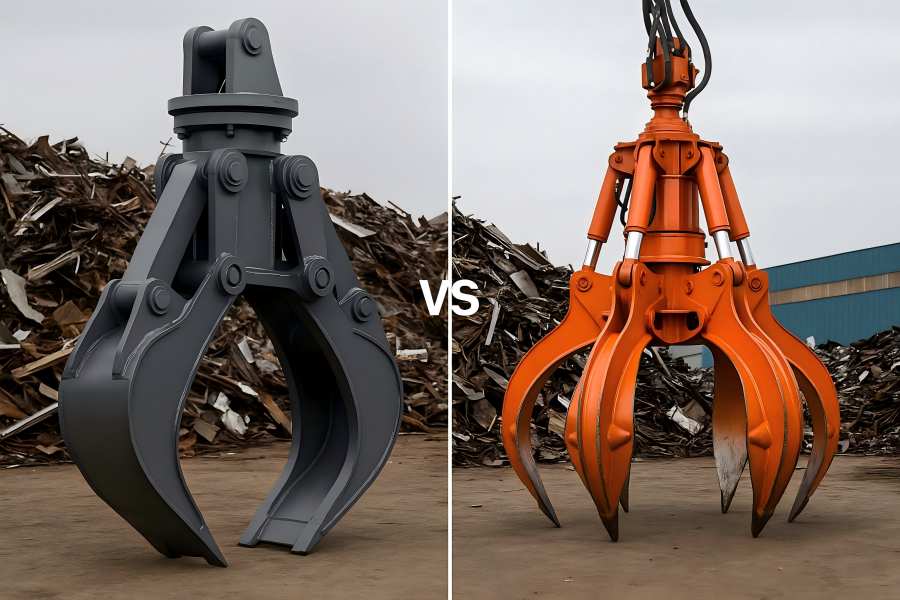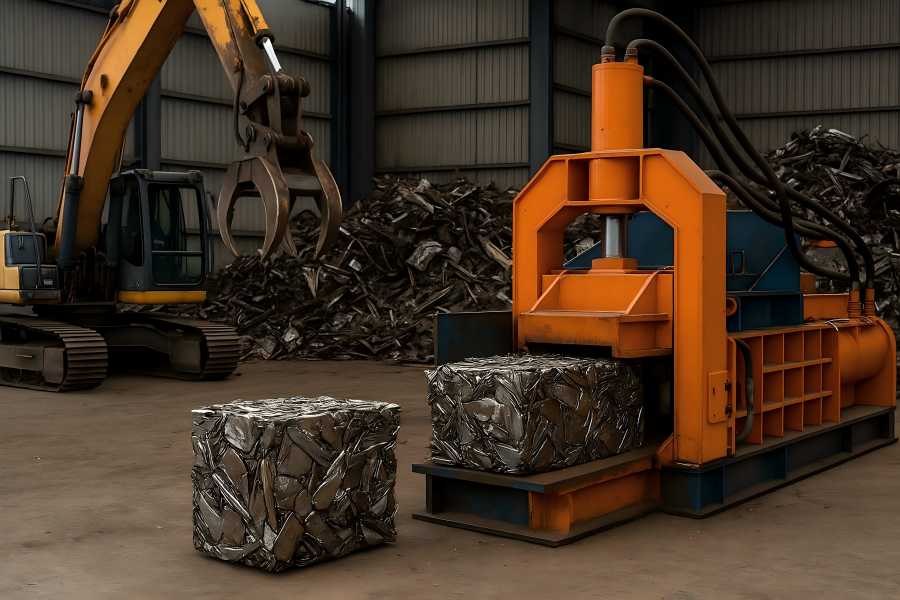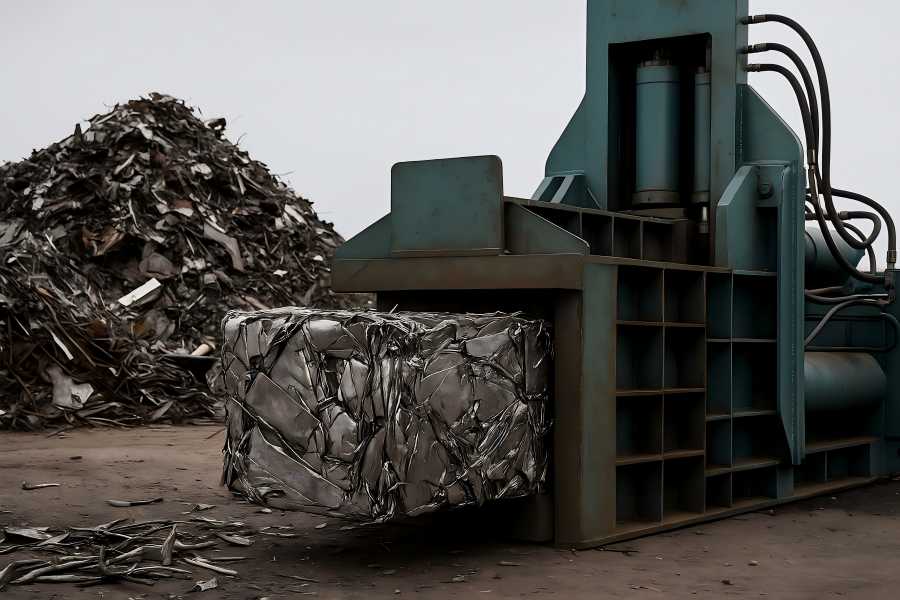As the world faces environmental challenges, vehicle recycling has become key to waste management. The process has been significantly enhanced by car balers, making it more economical, eco-friendly, and efficient. This article looks at how car balers are changing vehicle recycling by highlighting their features and benefits.
The Role of Car Balers in Vehicle Recycling
Car balers, also known as automobile baling machines, are heavy-duty machines that compress and bundle end-of-life vehicles (ELVs) into compact bales, making them easier to transport and recycle. These machines are essential in modern vehicle recycling, improving efficiency and cost-effectiveness.
Car balers have replaced the old method of manually dismantling cars, which was slow and costly, by automating much of the process, reducing labor costs and processing time.
Key Features of Car Balers
High Compression Power
Car balers’ tremendous compression power is one of their most important characteristics. The machines are capable of applying immense pressure to compact entire vehicles into manageable bales. This reduces the size of the vehicles by as much as 80%, allowing for more efficient storage and transportation.
By compressing vehicles into bales, car balers help reduce the amount of space required to store end-of-life vehicles, enabling recycling facilities to handle larger volumes of vehicles more effectively.
Efficiency and Speed
The high efficiency of car balers allows for the rapid processing of vehicles. Traditional methods of recycling vehicles can take hours or even days to dismantle and sort materials. In contrast, car balers can handle a vehicle in a matter of minutes.
The speed at which the balers operate significantly improves the throughput of recycling facilities, allowing them to process large quantities of vehicles in less time. This not only makes recycling more efficient overall, but it also helps recycling operations become more profitable.
Reduction of Carbon Footprint
Car balers contribute to reducing the carbon footprint of vehicle recycling. By compressing vehicles into compact bales, the need for large transportation vehicles is minimized. Fewer trucks are required to transport the baled vehicles to recycling centers, which reduces the amount of fuel consumed and the emissions generated during transportation.
Additionally, since baled cars are easier to process, the overall energy consumption in recycling plants is reduced.
Flexibility and Adaptability
Car balers come in various models and configurations, each designed to suit different recycling needs. Some models are designed for high-volume processing, while others can handle specialized tasks such as processing larger vehicles like trucks and SUVs. The flexibility of car balers means that recycling facilities can choose the best machine for their specific needs,
whether it’s for high-capacity processing or for dealing with diverse types of vehicles. Car balers can be used for a variety of recycling tasks, from small businesses to huge industrial operations, thanks to their versatility.
Safety Features
Car balers are no different from other industrial machines in that safety is always the top priority. Numerous safety elements are built into contemporary vehicle balers to safeguard drivers and maintenance staff.
These include emergency stop buttons, automatic shutdown systems in case of malfunction, and reinforced structures to prevent accidents during operation. These safety features help reduce the risks associated with operating heavy machinery and ensure that vehicle recycling facilities can operate with minimal risk to their workers.
Cost-Effectiveness
While the initial investment in a car baler may seem high, the long-term cost savings make them an attractive option for vehicle recycling operations. The increased speed and efficiency of the machines lead to lower labor costs and greater throughput, which boosts profitability.
Additionally, the compact bales produced by the balers are easier to transport and store, further reducing operational costs. Over time, these machines prove to be a wise investment for recycling facilities looking to scale their operations and improve their bottom line.
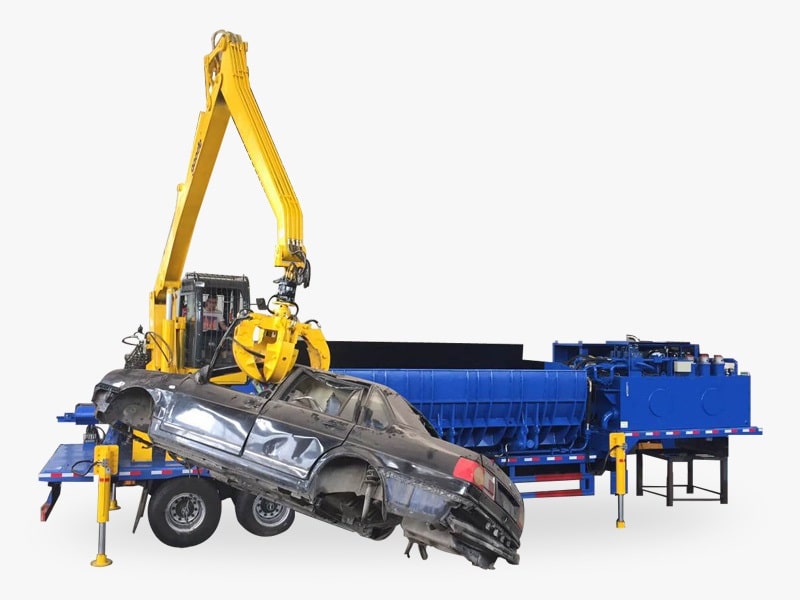
Benefits of Car Balers for Vehicle Recycling
Environmental Impact
The environmental benefits of car balers cannot be overstated. By compressing and bundling vehicles into compact forms, car balers facilitate the recycling of materials such as steel, aluminum, copper, and plastics, all of which can be reused in the manufacturing of new products.
This lessens the impact of mining and extraction operations on the environment and aids in the conservation of natural resources. Moreover, car balers contribute to the reduction of landfill waste, as more cars are being recycled rather than disposed of in landfills.
Sustainable Resource Recovery
As global demand for raw materials continues to rise, recycling has become a crucial element in ensuring the sustainable recovery of valuable resources. Car balers play a pivotal role in this process by enabling the efficient separation and recovery of metals and other valuable materials from old vehicles.
The compressed bales produced by the balers are easier to handle and sort, making it more feasible for recycling plants to recover valuable materials such as steel, aluminum, and copper for reuse in new products.
Improved Recycling Economics
The economic advantages of car balers extend beyond cost savings. Car balers boost the industry’s overall profitability by increasing the recycling process’s efficiency. As more vehicles are recycled, the supply of raw materials increases, leading to a reduction in the cost of producing new products.
As a result, the recycling sector becomes more economical and sustainable, which benefits both companies and customers. Additionally, car balers help recycling facilities stay competitive in an increasingly demanding market by allowing them to process large volumes of vehicles quickly and efficiently.
Compliance with Regulations
Vehicle recycling is subject to a wide range of environmental regulations aimed at minimizing the environmental impact of the process. Through waste reduction and the effective separation and processing of recyclables, car balers contribute to the observance of these laws.
Many countries have strict laws regarding the recycling of vehicles, and car balers help recycling facilities meet these legal requirements while minimizing their environmental footprint.
Job Creation and Industry Growth
The growth of vehicle recycling operations driven by car balers also contributes to job creation in the recycling industry.
As recycling plants expand their operations to accommodate the increased processing capacity made possible by car balers, they create new job opportunities in manufacturing, maintenance, and operations. This expansion promotes sustainable development, which helps the recycling industry as well as the economy as a whole.
The Future of Car Balers in Vehicle Recycling
As the demand for vehicle recycling continues to grow, the role of car balers will become even more important. Advances in technology are likely to make these machines even more efficient, with improved automation, energy efficiency, and data tracking capabilities.
The integration of artificial intelligence (AI) and machine learning into car balers could allow for even more precise sorting and processing of materials, further enhancing the efficiency of vehicle recycling operations.
Moreover, the push toward electric vehicles (EVs) and autonomous vehicles (AVs) will likely require the development of specialized car balers capable of handling new types of vehicles. As the automotive industry continues to evolve, so too will the technology used in vehicle recycling, and car balers will undoubtedly play a central role in shaping the future of the industry.
Conclusion
Car balers are revolutionizing the way we approach vehicle recycling, offering a range of benefits that make the process more efficient, environmentally friendly, and economically viable. With their high compression power, speed, flexibility, and cost-effectiveness, car balers are transforming the recycling industry and helping to pave the way for a more sustainable future.

